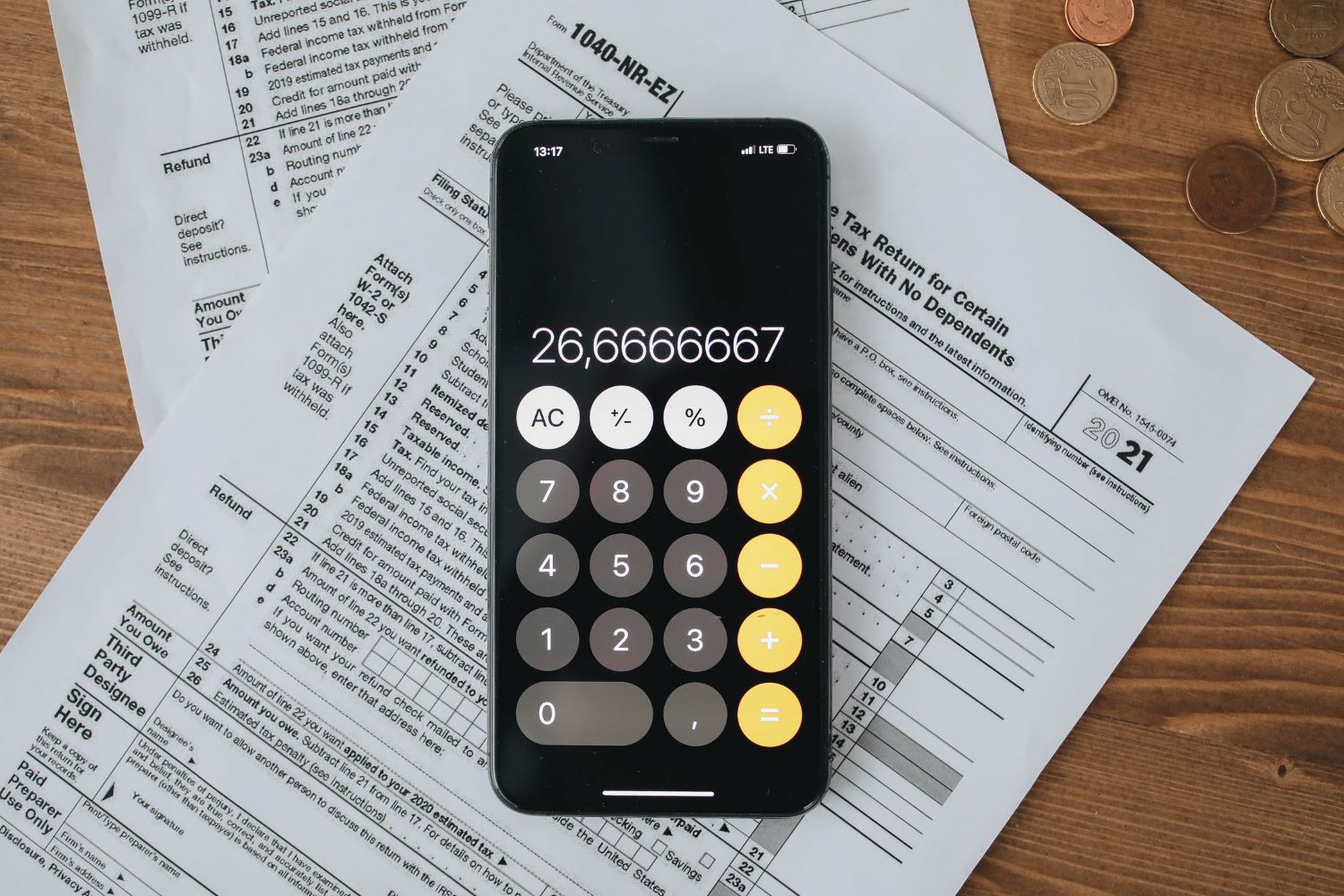If you're at the very beginning of your real estate investing journey, you're probably already familiar with the basics of rental property investing.
Thank you for reading this post, don't forget to subscribe!Choose the right property, the right location, the right type of tenants or guests, and price it right to derive larger profits over time — pretty simple, isn't it?
But as you delve deeper into your real estate journey, you'll soon find that in order to truly maximize your rental income and continue growing as a business, you're going to need a deeper understanding of real estate taxes, as well as the tax benefits you can claim.
Out of the many methods investors use to get the most favorable tax treatment, taking full advantage of rental property depreciation is one of the best ways to boost your net profits and reduce your tax liability as a rental property owner.
So, how does this helpful tax deduction work and how can you claim a depreciation deduction as a short-term rental property owner?
Here's all you need to know about rental property depreciation, including how your tax liability changes when you sell a rental property!
What is rental property depreciation?
First things first, let's tackle the most important question: What exactly is depreciation and how does it affect rental properties?
In short, depreciation refers to the value of a given asset, accounting for how much of its total value has been used. All assets, from real estate property to cars and machinery, lose their value the more they are used, or in other words, depreciate as time goes on.
When assets depreciate over time, their total cost is realized in line with their usage, meaning that the cost of using each asset can become quite expensive without an accounting method balancing everything out.
In the real estate investing world, depreciation refers to this beneficial tax accounting method: Value loss is taken into account so that you can write it off on your tax return.
While there are many different types of depreciation that can be applied to an asset like a residential rental property, straight-line depreciation has become the most common for American real estate investors, with the IRS having standardized depreciation under this method.
According to IRS regulations, straight-line depreciation has to be used to depreciate residential rental real estate over 27.5 years and commercial rental real estate over 39 years.

What are the benefits of depreciation?
The reason why so many real estate investors chose to claim rental property depreciation comes down to the remarkable deductions you can apply to your tax return.
In many ways, depreciation is an "expense" you can add as part of your losses every year.
Your rental depreciates even if you're not actively making major repairs on your property each year, and even if the asset is actually appreciating over time, which is usually the case with any real estate property!
So, what are the biggest benefits of claiming this handy tax break?
They can all be grouped into one incredible benefit: You'll be able to claim a considerable annual tax deduction and keep more money in your pocket!
This means that while applying depreciation doesn't change your positive cash flow in any way, the generous deductions you can get from claiming depreciation can dramatically affect your cash outflow.
Let's take a practical example: Your annual income from renting out a property, either short-term or long-term, is around $20k and you're in the 22% or 24% tax bracket, ending up with less than $8k or even $7k profit after taking care of the maintenance expenses and mortgage interest.
If you claim a depreciation deduction at the end of your tax year, you could dramatically reduce the amount of income taxes you owe, as you could (depending on your tax bracket) reduce your property's taxable income to as little as $2k!
What about the disadvantages?
But there are also disadvantages to claiming depreciation deductions, depending on how you are planning to use your rental property going forward.
The biggest con of depreciating comes down to what happens after selling a rental property: If you have claimed an annual depreciation expense before, you'll be liable to pay a depreciation recapture following the rental property’s sale.
You're likely already familiar with capital gains tax on rental properties, but what's depreciation recapture, exactly?
In short, this is a special (and expensive) tax that the IRS charges to property owners who have benefitted from deductions to their taxable income, rather than only using the more favorable capital gains tax.
This means that when property owners sell a rental property for a gain, any gain received up to the depreciation amount will be classified as ordinary income to offset the earlier deductions.
As we hinted at earlier, recapture tax rates tend to be quite unfavorable, as your profits from the sale will be taxed according to your ordinary income up to a rate of 25%.
Any gain above that amount will also be subject to capital gains tax.
Does this mean that I shouldn't report a depreciation expense?
Contrary to popular belief, you are not legally required to depreciate your property.
So, if you want to take full advantage of capital gains and not owe anything when you sell a rental property, you might be tempted to not report any depreciation expense at all!
But while recapture tax can be a hefty bill to pay, you still shouldn't think of it as a dealbreaker.
There are virtually no real disadvantages to claiming depreciation, as even if what you owe is the same as your income tax bracket, you'll be able to use the money you saved through annual deductions to offset the extra cost.
In a way, paying back depreciation deductions is not unlike getting an interest-free loan from the IRS!
On top of that, if you sit in a higher tax bracket than 24%, the recapture tax will even be less than the income tax you would have paid otherwise.
Can you always claim depreciation?
Now that you know why claiming depreciation is so beneficial as a rental owner, let's get to the next frequently asked question regarding the procedure: Can you always claim a depreciation deduction?
According to IRS regulations, your rental property can be depreciated as long as it meets four key requirements.
- Ownership - The first and quite straightforward requirement is that you have to own the property you want to report depreciation for.
- The property must be used for business or investment purposes - The rental property must be an income-producing property, whether you are renting it out short-term or long-term.
- It must have its useful life determined - The property in question must also have a determined useful life, which in the case of residential property, will always be 27 or 28 years. Keep in mind that useful life doesn't refer to how long the asset is going to last, rather to the period of time over which depreciation will occur!
- It must last for more than one year - Finally, your rental property must be expected to last more than a year, as well as to be in service for over a year. This means that if you are planning to invest in a fixer-upper to first rent out and then sell within the same year, you won't be able to claim depreciation! It's also useful to remember that you can only depreciate real estate and physical assets, so you won't be able to deduct anything related to the land you own.

How to calculate depreciation on your investment property
So, if your rental property ticks all the boxes and meets the criteria, how can you calculate how much you'll be able to deduct each year?
Generally speaking, there are three main factors determining how much you can claim as a deduction: The cost basis of the asset, the depreciation method you're using, and the recovery period.
Before we dive into how to calculate your deductions, let's take a closer look at what these terms mean, and why they are crucial for understanding the annual depreciation of your asset.
What is the cost basis of property?
The cost basis of a rental property refers to the total investment resources you've put into the asset, including not only how much you've paid for the property itself but also all costs related to home improvements, property taxes, transfer fees, appraisal fees, and title fees expenses.
Determining the total cost basis is the first step for calculating depreciation, and you can easily calculate both the land value and the cost basis of your rental property by looking at your tax bill or hiring professionals for an appraisal.
What is the recovery period?
The recovery period is another important factor to keep in mind when calculating depreciation, as it refers to the period of time over which you should depreciate your asset.
This figure is also referred to as the useful life of a given asset.
As we've explained before, residential real estate is depreciated over 27.5 years, while commercial real estate has a recovery period of 39 years.
What depreciation methods to use
Once you have your cost basis and recovery period figured out, you can start crunching the numbers to get to your depreciation figure.
Now, there are different methods you can use to get this figure, so we recommend you get in touch with a professional to get the best tax advice for your needs!
Generally speaking, however, you'll be required to use two different methods depending on when you've placed your property in service, meaning the year you've started to rent out your home or began your rental property business.
If you're depreciating property you placed in service before 1987, the IRS states that you must use the Accelerated Cost Recovery System (ACRS) method, or alternatively, the same method you used in the past to figure out your deduction.
When it comes to property placed in service after 1986, on the other hand, you must use the Modified Accelerated Cost Recovery System (MACRS) instead.
For the purpose of this explainer, we'll focus on the MACRS method as it is the most current for calculating depreciation and federal tax.
Straight-line vs declining balance method
The key difference between the MACRS system of depreciation and other systems is that it allows for larger deductions in the early years of ownership, resulting in lower deductions over the later years.
When using the MACRS system, you can calculate the deduction for depreciation by using two methods: The straight-line method or the declining balance method.
The straight-line method makes for the simplest way to account for depreciation for different assets, including real estate.
It simply involves computing the initial cost of the asset, its salvage value (income you can make by disposing or selling), and its recovery period, before figuring out the depreciation schedule.
The main feature of straight-line depreciation is that the expense is spread out evenly over the course of the asset's useful life, so the depreciation rate is going to be the same over the years.

The declining balance method, on the other hand, allocates a greater amount of depreciation in the earlier years of an asset's useful life.
When dealing with real estate and rental property, accountants will generally use the former method.
Now, based on the asset class table provided by the IRS, you'll be able to work out the depreciation you have to apply to your business, following a simple formula: D1 = C × R1
This means you are multiplying the property's cost basis by the depreciation rate of the year, which is based on your asset's recovery period.
The amount of depreciation derived has to be reported on your income tax return, so that the government can determine your taxable income and take all qualifying deductions into account.
So, how can I claim a depreciation expense?
After you've calculated your rental property depreciation, either by yourself or with the help of a trusted accountant, you'll be able to claim your annual depreciation deduction by reporting it in your Schedule E form.
Keep in mind that you might end up using a different form in certain special situations.
For example, you might end up using form 4562 if you are claiming in the year your property has been put into service.
Taking the headache out of tax season
Whether you are new to short-term rental investing or you're simply trying to claim depreciation for the first time, understanding all these accounting formulas can be a daunting and time-consuming process.
Between determining your cost basis and figuring out the best depreciation method to use, the confusion can make running a business with multiple rental properties a recipe for disaster... and you don't want to make mistakes at the end of the tax year!
We always recommend getting in touch with an accountant or tax professional with a deep understanding of short-term rental investing, so you can avoid any risk and maximize your deductions.
Need more help right away? You can check out more of our insights on how to calculate rental property expenses on our blog, or get in touch today to get your short-term investing journey started!
